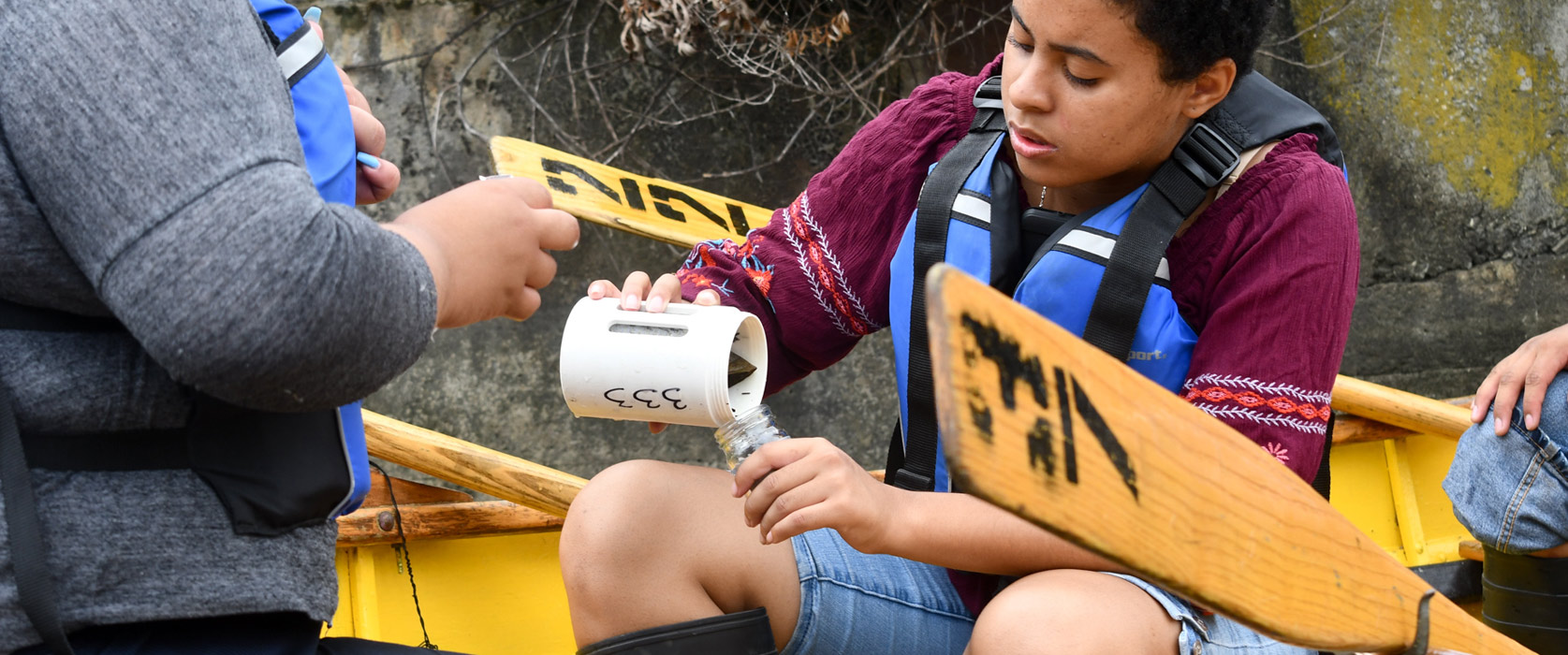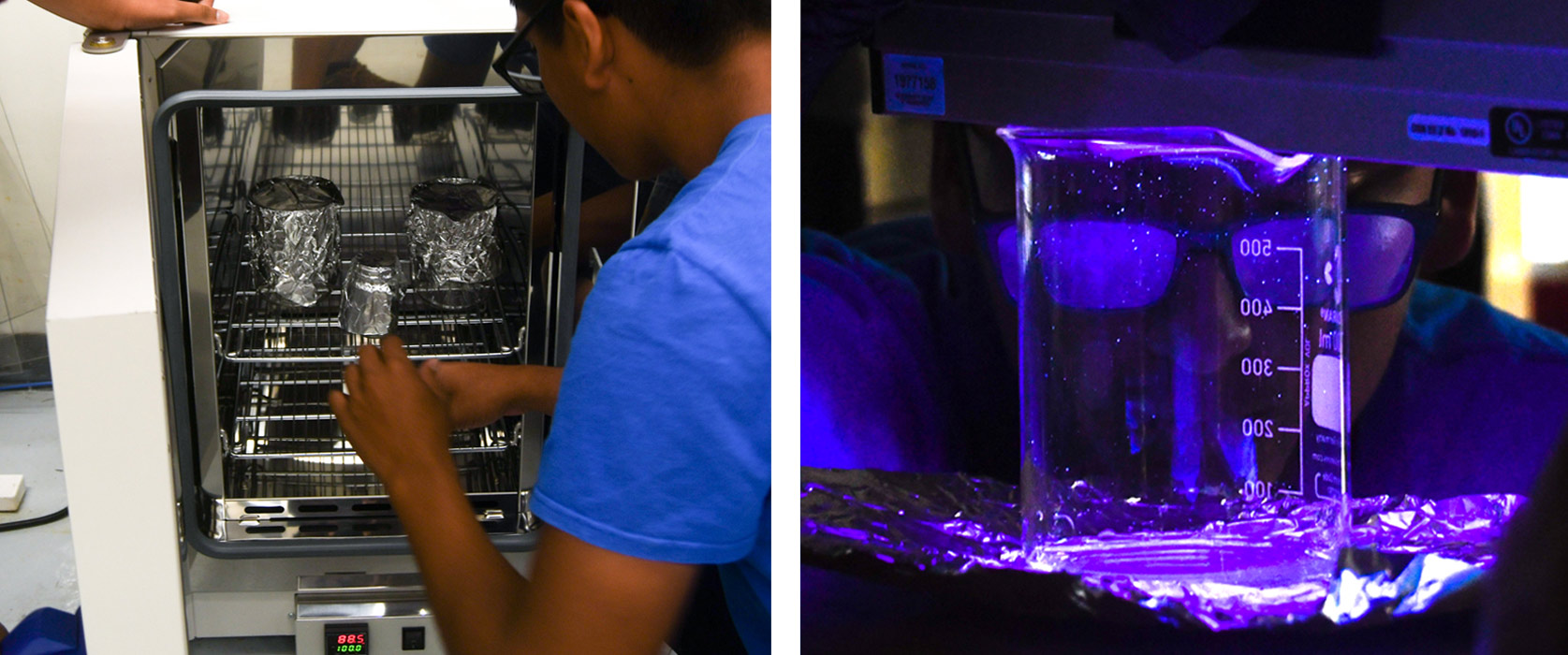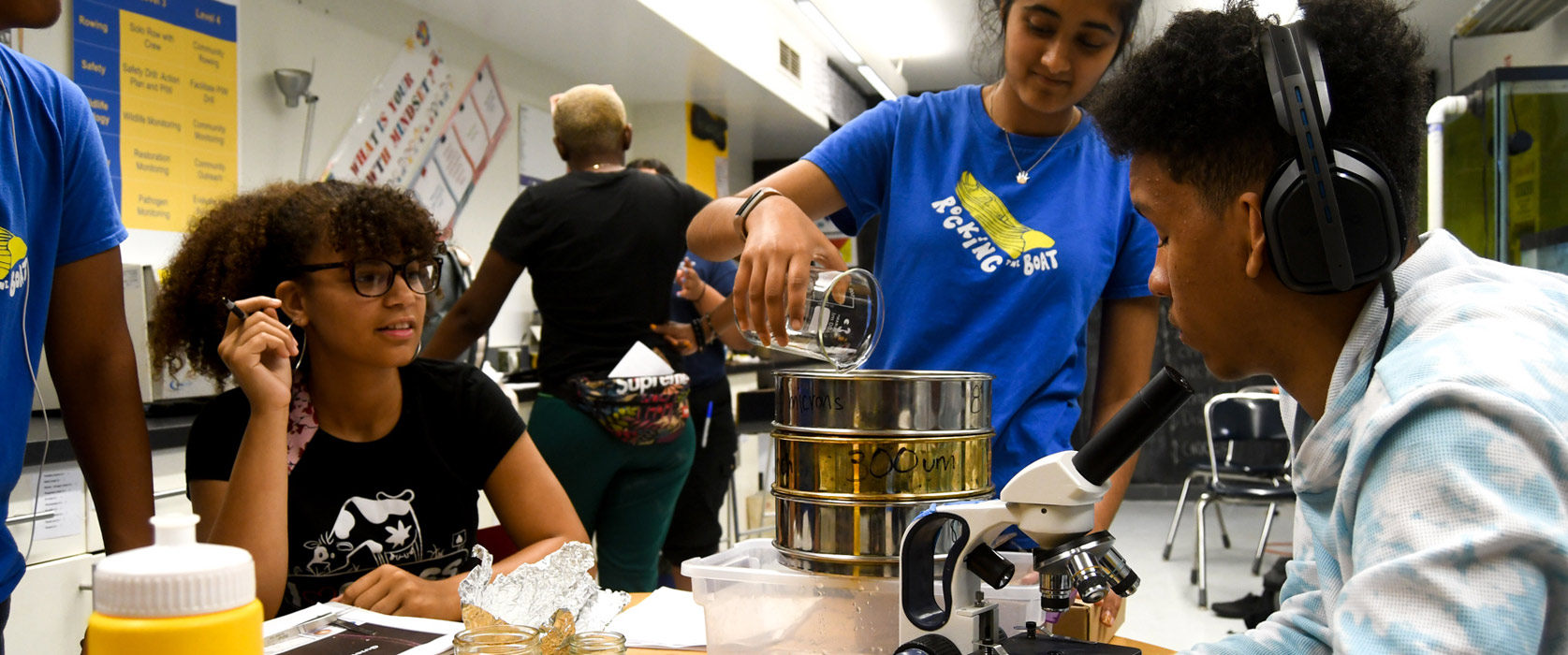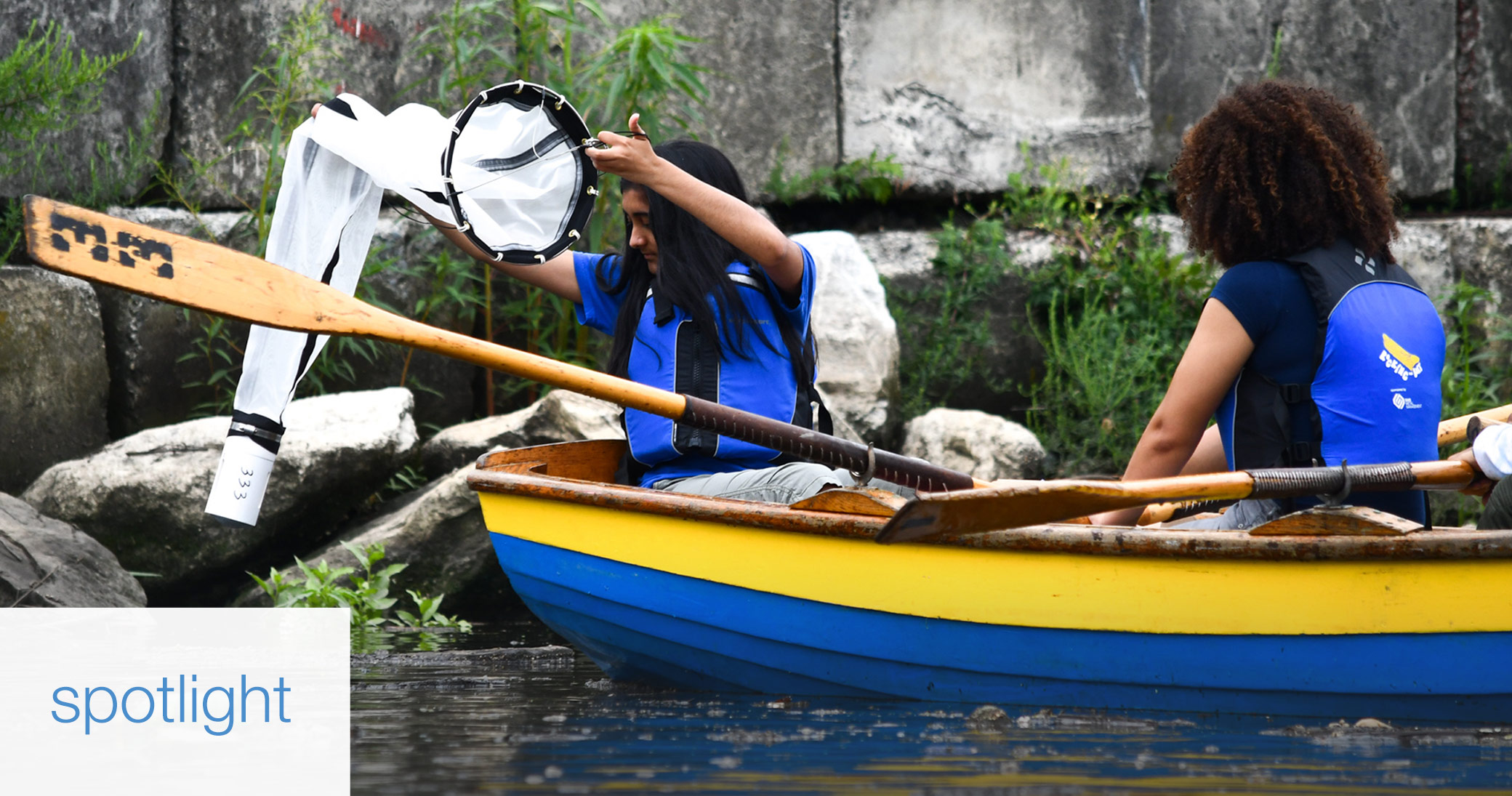"Once you know, it’s hard to go back. Now you have to do something," says Robertson, a high school senior and apprentice in Rocking the Boat’s Environmental Job Skills Program, who is taking part in the first ever study of microplastic contamination of the Bronx River. In a pilot phase begun this past summer, he and his peers are testing water samples to establish a baseline presence and raise awareness about reducing plastic use and improper disposal. While Rocking the Boat participants have been studying and monitoring Bronx River water quality for years, delving into the emerging threat from plastic has been eye-opening, or what another apprentice, Jenise, called "mindblowing." "It’s everywhere, in everything! In your body, you’re wearing it."
It is no wonder then that plastic is also finding its way unwanted into waterbodies of all kinds. Commonly defined as pieces 2mm or smaller, about the thickness of a nickel, microplastics either started small, like microbeads found in exfoliating scrubs and even toothpaste, but more often, are broken and shredded pieces of larger items such as plastic and Styrofoam packaging and food containers, plastic bags, and synthetic clothing. They enter the water system as garbage caught up in stormwater runoff and combined sewer overflow. Over time, they disintegrate into smaller pieces. However, being plastic, they don’t biodegrade or break down chemically, instead surviving almost indefinitely, leeching toxins into the water, spreading and settling anywhere the current flows.

To isolate and measure these unseen plastics, apprentices have learned a complex process, following established NOAA protocols and employing specialized equipment. They first trawled fine nets through the water, having to figure out how to capture a sample and bring it out of the water without stirring up any contaminating sediment. It turned out that their student-built rowboats made the perfect platform from which to sample. They then further strained and dried the samples in their laboratory oven. Only then, under blacklight, could they see the illuminated plastic that remained, glowing granules coating the bottom of every sample jar. It made tangible the fact that plastic was everywhere, the Bronx River included. Robertson recalls, "It felt good but scary. Good because here’s proof, but scary we're figuring it out."

Being the first is never easy, but these apprentices have help. The project is funded by ERM Foundation, the charitable arm of Environmental Resources Management, a global environmental consulting firm and past supporter of many Rocking the Boat research and conservation projects. Beyond providing a grant to purchase the new equipment, ERM employees have contributed vital expertise in the field of plastics to every step of the project, from how to best gather the samples, to setting up a database for recording the results. Rachel Davis, an ERM Project Geologist who also conducts community outreach programs raising awareness around plastic in the environment, provided perhaps the most important guidance—what to do about it. During a visit this fall, she asked the students to name one action they can take now to address the plastic problem. Swapping plastic bags and bottles for reusable ones was one practical idea, but Rachel challenged them to do something that could be the most effective for Rocking the Boat participants: "Use your voices."

As a group, the apprentices have already presented the project to peers and family at Rocking the Boat events. The monitoring project will continue in 2020, when apprentices will deepen their research by using microscopes to identify the source of the microplastic in their samples—bags or Styrofoam, for example—and sharpen their message to the community about exactly what is being deposited into the neighborhood river, and show them, under blacklight, it is still there. Robertson and his classmates believe that others will feel the same way they do: that once you know about the problem, you have to do something about it.
"I work in an industry that is cleaning up hundreds of years of waste. It gets discouraging. But when I work with these young students, who are so open to new ways of solving these problems, it gives me hope."
- Rachel J. Davis, Project Geologist and Sustainability Adviser, Environmental Resources Management





